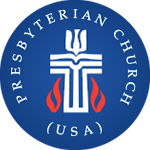
The Apostle Paul is widely known for his travels and for how he spread the good news of the Gospel of Jesus Christ. He visited many places, but there is one community with which he formed a very special bond. Around 52 CE, Paul came to Philippi in the midst of his second missionary journey. Paul had a vision of a man of Macedonia who begged him for help, which bent his path to run across this town.
Philippi had three things for which it was well known: 1. It was near ancient gold and silver mines, which though exhausted, had put the city on the map for trade routes. 2. It was founded by Alexander the Great’s father, who was named Philip. 3. It had achieved the special dignity of becoming a Roman “colony.” Roman colonies were the places veteran Roman soldiers, 300 or so, were sent with their families to retire along key roads within the Empire so that reinforcements could be quickly dispatched to any area in trouble. Roman colonies were meant to be reflections of Rome itself from language, dress and culture. Roman colonies took great pride in their status (Barclay).
You can read the story of Paul’s encounter at Philippi in Acts 16. This is when Paul met Lydia, who dealt in purple cloth. Lydia was a “worshipper of God” already, but was not familiar with Jesus. Once Paul gave testimony to her and the others who worshipped God with her along the banks of the river, they were converted. This story is interrupted by Paul coming across a slave girl who was held hostage by an evil spirit which brought to her predictions of the future. Paul cast out the spirit, infuriating the slave-girl’s master because she lost her value. All at once she lost her remarkable ability, and was also set free. Paul and the rest of his envoy were dragged into the city square to face a magistrate, and upon his instruction were beaten and imprisoned. The charge was “disturbing the city.” Paul and his party were freed when an earthquake struck, opening the prison doors. Paul even converted the guards on his way out!
Eventually, Paul had to leave Philippi to continue on his mission, but he always kept in touch. We know that there were multiple letters sent back and forth, and the only gift Paul ever accepts is from the little congregation in Philippi. One of the letters (or two, combined according to some scholars) is now known to us as “Philippians,” one of the epistles of the New Testament. The Philippian congregation is also referenced in 2 Corinthians 11:9 as the ones who supplied him what he needed for his trip at that time.
In Philippians 1: 3-6, we get a taste of the bond that still exists between them, probably more than a decade after their first encounter: I thank my God every time I remember you, constantly praying with joy in every one of my prayers for all of you, because of your sharing in the gospel from the first day until now. I am confident of this, that the one who began a good work among you will bring it to completion by the day of Jesus Christ.
Later, in chapter 3, Paul gives them warnings about problems within their community, much as he did for the people of Corinth. He warns about the people who teach circumcision as a requirement for salvation, without regard to the power and faith in the resurrection through Jesus. In Philippians 3:15-16, He urges the community to be focused on what has “already been attained.”
This is a powerful nudge. For Paul’s favorite church, he sees focus on Jesus and his gospel as essential to the identity of the church and the direction it takes. Later in Philippians 4:6-9, Paul writes, The Lord is near. Do not worry about anything, but in everything by prayer and supplication with thanksgiving let your requests be made known to God. And the peace of God, which surpasses all understanding, will guard your hearts and your minds in Christ Jesus. Finally, beloved, whatever is true, whatever is honorable, whatever is just, whatever is pure, whatever is pleasing, whatever is commendable, if there is any excellence and if there is anything worthy of praise, think about these things. Keep on doing the things that you have learned and received and heard and seen in me, and the God of peace will be with you.
Paul refocuses the anxiety and division of the church away from the points of disagreements, and towards their common bond and mission. His commendation is one of transformation, that we would be transformed by our faith and orientation towards Jesus and find its peace within that transformation.
As you can see, Paul and the congregation at Philippi have a very special bond! If you are looking for your next book of the Bible to study, I would highly recommend Philippians, with Acts 16 as its prequel. For a special focus, I would lift up Philippians 2:1-11, known as “The Christ Hymn” as one of the crown jewels of Paul’s writings.
Happy studies!
Grace and Peace,
Pastor Rob
Barclay, William. The Letters to the Philippians Colossians, and Thessalonians. The Westminster Press, 1985. pp. 3-5.

